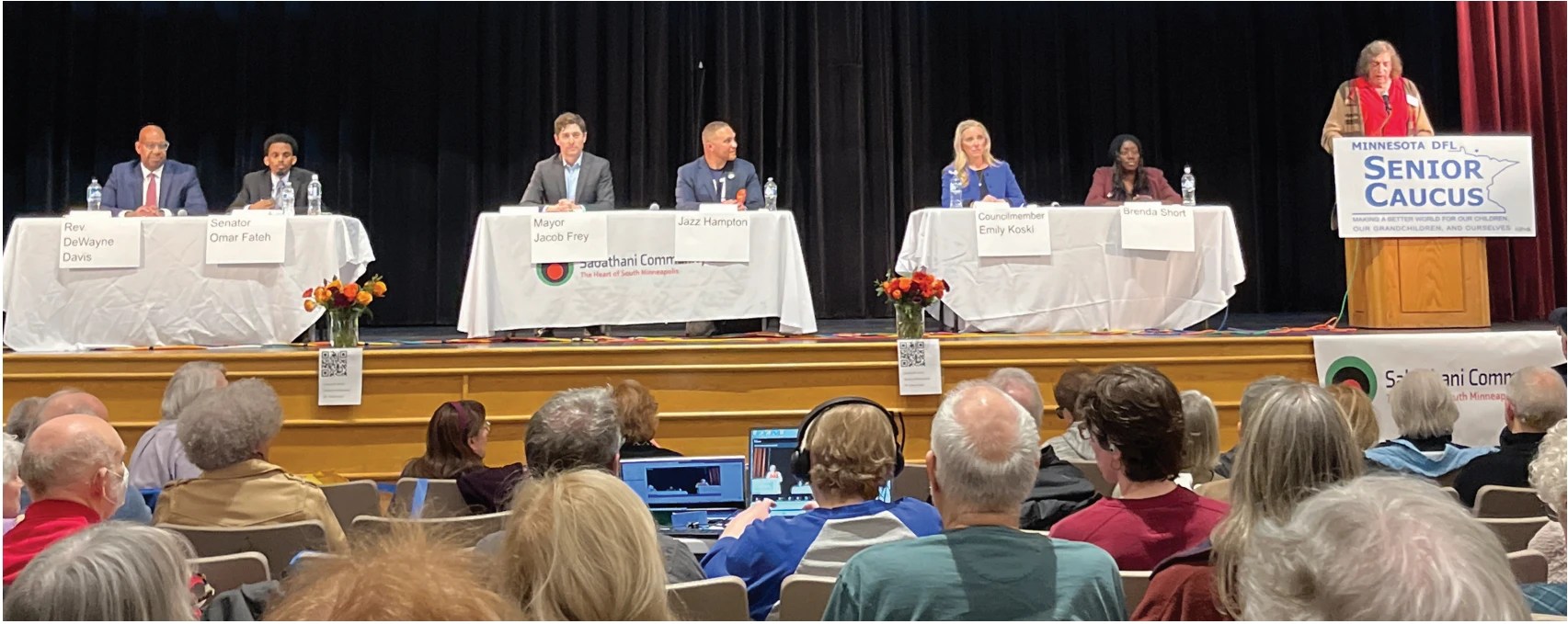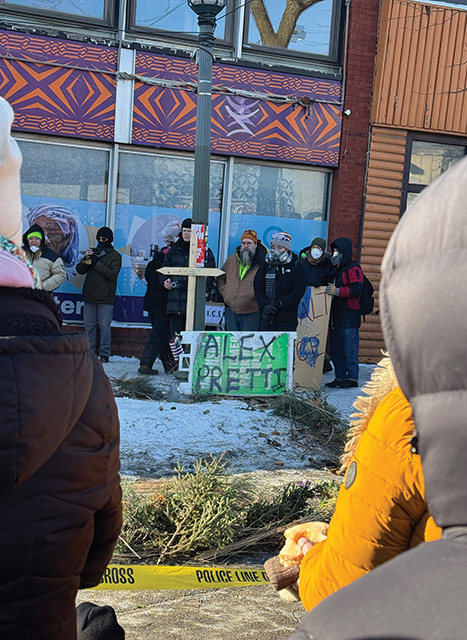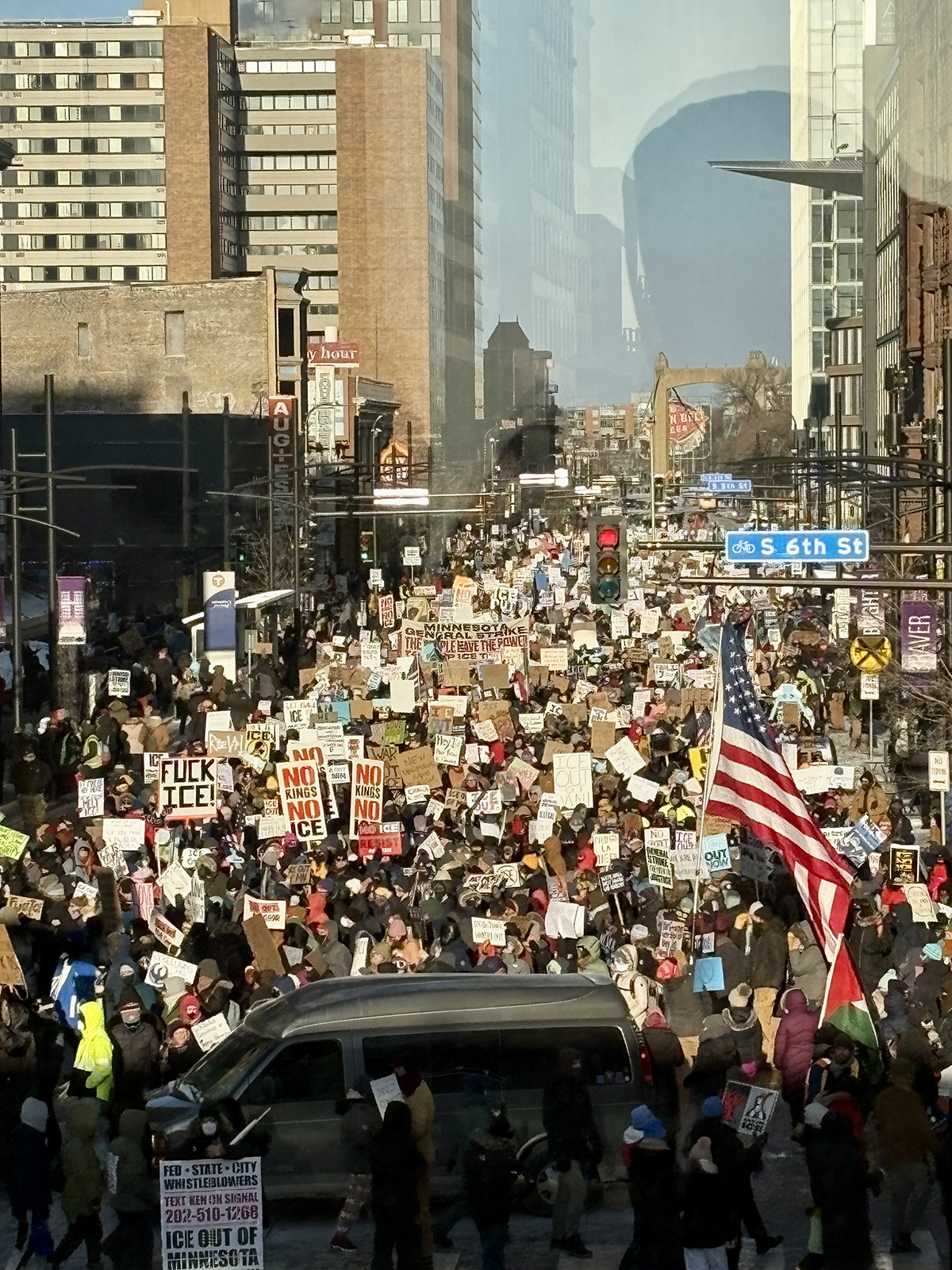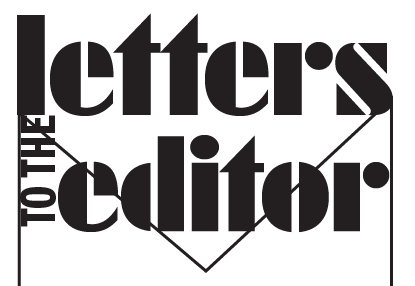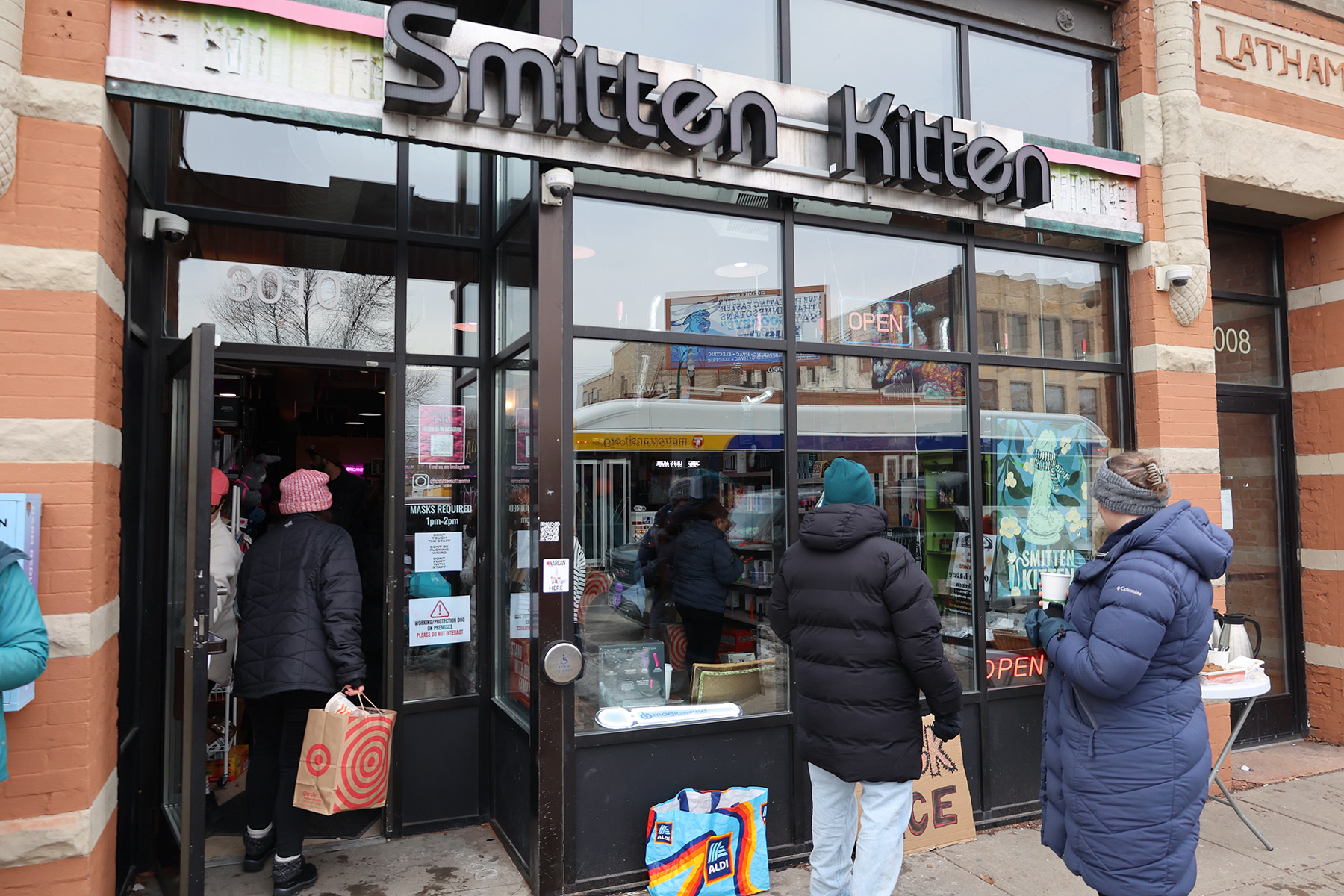The Minneapolis Chapter of the DFL Senior Caucus recently hosted a mayoral forum. Candidates in attendance included the Rev. DeWayne Davis; State Sen. Omar Fateh, DFL– Minneapolis; Mayor Jacob Frey; Jazz Hampton; City Council Member Emily Koski; and Brenda Short.
The event was the first since the Senior Caucus elected new leadership. Officers include Bibi Black, chair; Jim Davine, vice chair; Susan Lynx, secretary; Ken Engelhart, treasurer; Byron Richard, membership director; and Cara Letofsky, political director.
The forum drew approximately 150 people in person at the Sabathani Community Center and another 154 online via Zoom. The momentum seen during the DFL caucuses appears to be ongoing. It’s evident that many people are eager to learn about the candidates and are willing to show up to meet them. The chaos on the national stage seems to be contributing to a sense of urgency in this local election. People are realizing that they cannot take good governance for granted — it requires active participation by citizens.
The format included a 90-second opening statement from each candidate and two minutes per question to respond to six questions. Since more than six questions were submitted, all were placed in a fishbowl, and candidates took turns drawing them at random.
The questions reflected the main concerns of voters:
- What is your approach to local economic development?
- Shelters are often full. What should the city do to ensure unsheltered people have housing?
- How will you address crime, including juvenile crime?
- Given the reduction in federal aid, how will you craft a budget that keeps property taxes from driving people out of their homes?
- As mayor, what changes would you make to the violence interrupter program?
- Do you believe the strong mayor system is effective? What would you do to improve it?
The candidate field may still change. On April 14, Council Member Emily Koski announced that she is ending her campaign. According to a statement on her campaign website, “I’ve come to a hard truth: Under the current political climate, I can’t be my authentic self and be a candidate in this race the way it demands. I tried to balance it all — be a mom, build a great team, serve as a council member, raise a million dollars, show up for my kids, show up for every event — all while being a person driven by honesty and integrity.” The full statement is available at emilykoski-formpls.com.
The five remaining candidates could be joined by others. In the 2021 election, 19 candidates ran. Based on results from the recent Minneapolis DFL caucuses, Mayor Jacob Frey, State Sen. Omar Fateh and “Uncommitted” were awarded the most delegates.
Below is a summary of a few candidate positions from the forum.
Economic Development
Fateh: Fateh said he wants to support entrepreneurs by creating an Office of Small Business Support to help them navigate city processes. He also supports offering grants when road reconstruction impacts foot traffic, finding unused spaces for businesses and providing zero-interest loans to help them purchase property. He said he supports a vacancy tax.
Davis: Davis said he wants to at tract multinational corporations and secure commitments from them. He envisions Minneapolis as a hub for growth and wants to understand the obstacles facing small businesses. He supports offering incentives to small businesses and wants to see more investment in underserved areas.
Short: Short said she would pause new development and focus on making vacant apartments more affordable. She emphasized the importance of collaboration to help restore the city and support small businesses.
Hampton: Hampton said he wants to make it easier to start businesses by streamlining processes and cutting red tape. He noted that business owners should be able to call and get clear answers. He also said high taxes need to be addressed to foster economic growth and mentioned that he teaches a class on entrepreneurship.
Frey: Frey called small businesses the backbone of the economy and said many of the ideas presented by other candidates are already in place. He pointed to his administration’s creation of the Ownership and Opportunity Fund, which aims to help Black and brown business owners acquire their businesses' property to build generational wealth. He also supports breaking up larger commercial spaces to accommodate more small and local businesses.
Encampments and Crime
On encampments and crime, Frey highlighted the amount of affordable housing produced under his ad ministration and said Minneapolis is ahead of the national curve. He claimed the city has housed 2,500 people over the past year and expanded the shelter system. As of last week, he said there were 21 to 35 unsheltered individuals, compared to 200 to 300 a year ago.
Davis called for more housing development targeted at residents earning at or below 30% of the area median income. He proposed building a “scaffolding of support” to help people transition into permanent housing and said the city should seek more funding from the state.
Fateh said he supports a housing-first approach and opposes the removal of belongings from encampments. He criticized the city for lacking a comprehensive plan to address encampments and said its current actions are wrong. He pointed to his legislative record and the millions of dollars he has helped allocate for housing. He also advocated for shifting the city’s approach from a regulatory framework to a public health model.
Public Safety
On the question of safety, Frey cited statistics showing a decrease in crime and credited the steps taken by his administration and the Minneapolis Police Department to build a comprehensive public safety system. He said more police officers are needed to allow for increased community engagement and emphasized his desire to continue the work already underway.
Fateh referenced the murder of George Floyd and called for a transformative approach to public safety. He said he helped secure $19 million in public safety funding for the city and argued that an armed officer is not always necessary, favoring a different strategy.
Davis said addressing crime requires first addressing poverty.
The summary above reflects a few of the candidate positions discussed at the forum. The issues raised are of significant concern to many residents, and voters are encouraged to attend a forum to assess which candidate best represents their priorities. There are approximately six months until the election in November.
